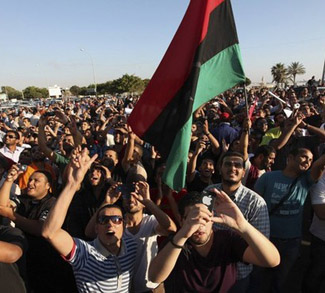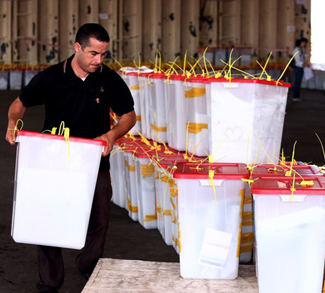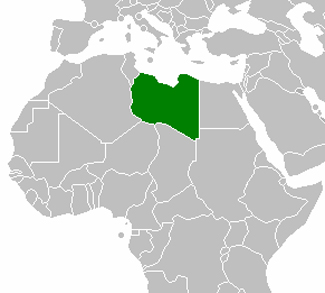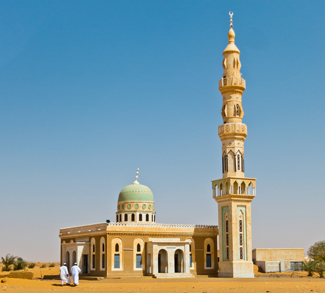In about a month, the Libyan people will go to the polls and elect an assembly responsible for drafting a new constitution. In the wave of self-congratulation that is sure to precede this historic event, one could easily lose sight of one important fact: the Libyan state is still largely a work of fiction.
Think of the democratization project in Libya as a race against time. The National Transitional Council (NTC) is trying to develop a credible political culture and institutional framework before certain segments of society, most of them armed, decide that their interests are better served in a battle that takes place outside the sphere of democratic politics. The NTC’s task is made all the more difficult by two complicating factors that are unique to Libya: there has been no political culture to speak of for the past 40 years and the tribal identities that pervade Libyan society make trust-building measures across sectarian lines an especially delicate affair.
The prevailing logic tell us that a strong central authority is what Libya needs; something that can provide an impartial security guarantee to all sides and convince them to disarm and participate in the democratic process in good faith. Unfortunately, nothing comparable exists in Libya at present. Journalists on the ground often note that security forces such as a national army and police force remain undermanned and underfunded, say nothing of the non-existent government services that have garbage piling up in cities across Libya.
Nothing illustrates the weakness of the Libyan state more than last week’s debacle at the Tripoli international airport. This issue surrounds the al-Awfea bridgade, a militia from a town in western Libya that stormed the international airport upon learning that their leader had been taken into government custody. Such an event in itself doesn’t exactly bode well, but it’s the details that are truly telling. Apparently, the only obstacle that stood between the attacking militia and the airport tarmac was a chain-link fence which they were able to conquer with wire cutters. The government forces in charge of guarding the airport on the other hand required no effort whatsoever; they opted to sit and watch as the militia took over. The officer in charge later defended the decision, saying that they lacked the equipment and manpower required to defend the airport, equipment like walkie-talkies. It should also be noted that on their way to the airport, the al-Awfea brigade traversed several checkpoints, all of them manned by separate militias that could have provided some kind of warning had they been in communication with one another.
Of course, in the end the crisis was defused without incident, but that’s owing to the fact that it wasn’t even the government who had kidnapped the al-Awfea brigade’s leader in the first place: it was a completely different armed militia.
The tenuous bonds holding the Libyan polity together derive from a combination of shared animosity towards the deposed Gaddafi regime and hope for better days ahead come election time. Yet there is reason to believe that both of these forces, though presently exerting a cohesive influence, may come to be entropic.
Popular hatred towards the Gaddafi regime is powerful as ever, as evidenced by the recent public outcry after secret national reconciliation talks in Cairo came to light. These talks involved Ali Sallabi, a religious leader, and various other figures with ties to the Gaddafi regime. After the talks became public, the NTC was quick to distance itself from Sallabi and thus maintain the integrity of its revolutionary credentials. Yet history has told us, most recently in Iraq, that some kind of national reconciliation is required in order to build political institutions that at least stand a chance of being truly representative. And given the fact that the Gaddafi regime was well supported by certain parts of the Libyan tribal landscape, the continued demonization of the old regime- something that continues to be one of the few things that everyone can agree on- may come at the cost of permanent political dysfunction.
And then there’s the Libyan people’s zeal for democracy. This is a trend that could also boomerang. New democracies, particularly in countries without organic political development, often follow a predictable track by which democracy comes to be a panacea in the eyes of the public; something that will fix all of society’s ills. After the first bout of elections however it becomes apparent that democracy, again particularly in countries without organic political development, is actually a process that more often complicates decision-making than streamlines it. In fact, given the economic challenges that Libya is sure to face as security issues scare off foreign investment, the risk of this kind of political apathy is even more pronounced.
Thus, the international community should remain clearheaded about political developments in Libya. Despite the ink-stained-thumb fairy tale narrative that will surely grace televisions around the world in early July, it will take a lot more than elections to stabilize the politics of Libya.




